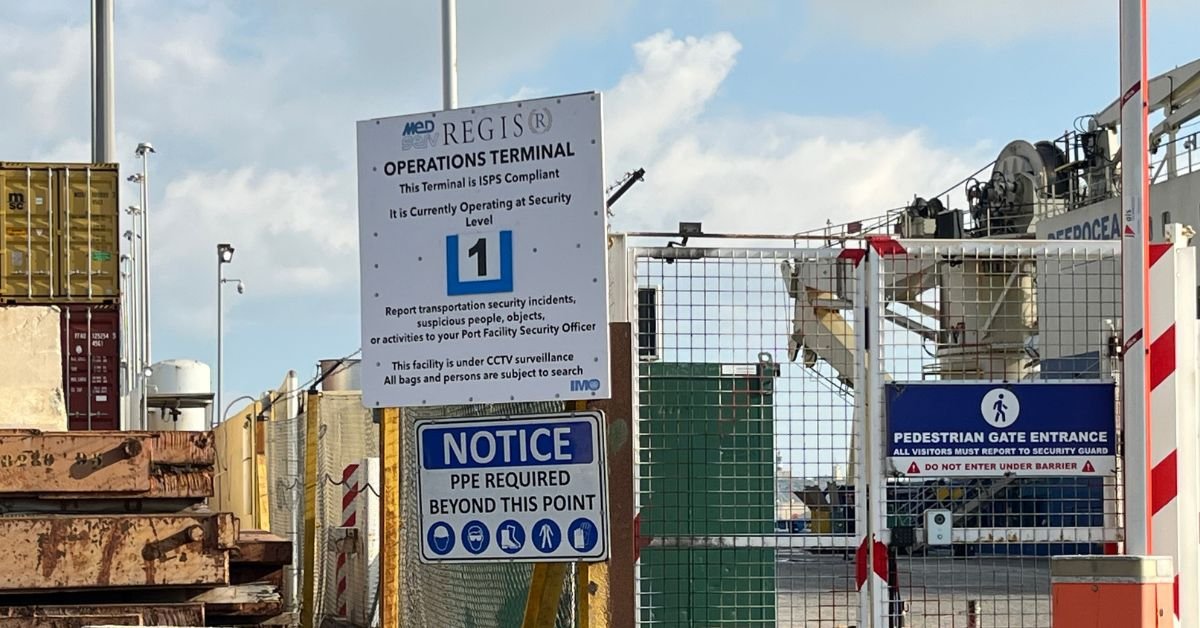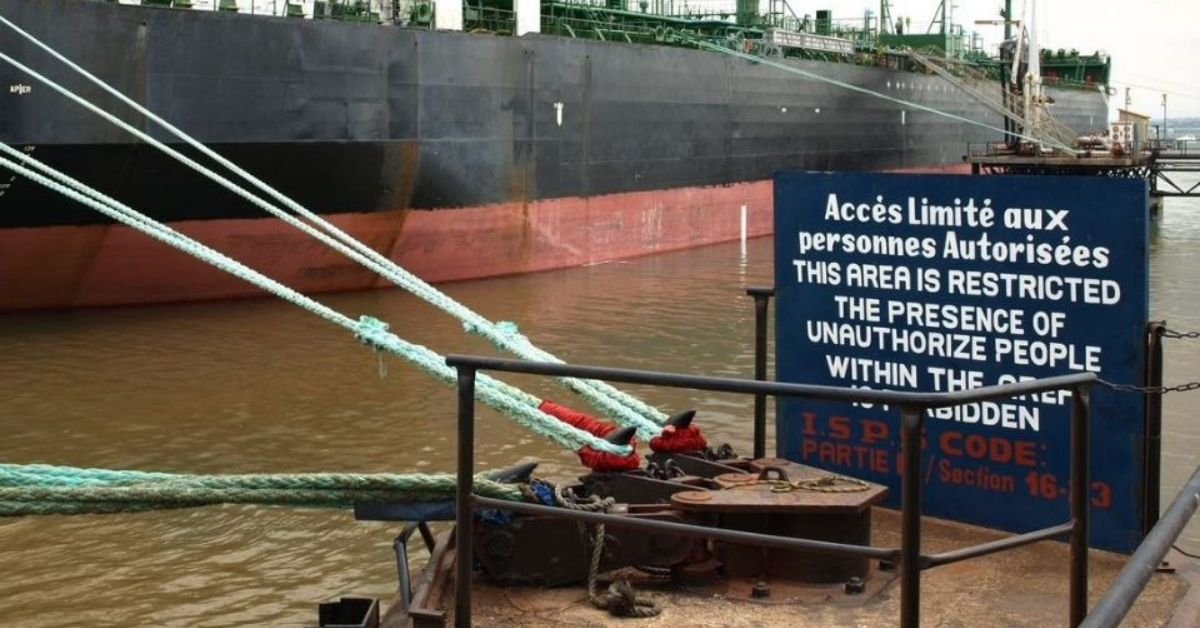
Using intelligence and industry best practice to combat criminal incidents against the supply chain
Recent high-impact incidents in Germany, France and Italy underscore the severe risks posed by organised criminals to supply chain and commercial facilities. Utilising intelligence from LandRisk Logistics and adhering to TAPA standards can fortify your organisation's security and resilience against criminal activities.
We recorded three very different, high impact incidents on LandRisk Logistics that took place between the 14-17 June 2024 which highlight the dangers that capable, motivated and well resourced criminals pose to the supply chain and commercial facilities.

Cross-border infrastructure in Northern Europe in a shifting geopolitical landscape
Last week, the spotlight was on Northern Europe's cross-border infrastructure in a shifting geopolitical landscape during the STRING and Region Skåne event at Connecting Europe Days in Brussels. With a focus on the Helsingør-Helsingborg fixed link and the Oslo-Göteborg railway stretch, the importance of these connections was underscored.
Hans Tino Hansen, CEO of Risk Intelligence, along with other specialists, added invaluable insights during the panel discussion, emphasising the intersection of civilian and military infrastructure needs.

Migrant smuggling and road freight transport: Current trends and patterns
Whilst the question of irregular migration, which continues to lie at the heart of European politics, overwhelmingly concentrates on maritime crossings of the Mediterranean Sea and the English Channel, recent data highlights a slow yet significant resurgence of enterprises placing road freight transport at the centre of their strategies.
This article delves into recent numbers, trends, and incidents to explain why irregular migration and smuggling remain a security threat to logistics operations.

Cargo theft: the threat posed by organised criminal groups
Cargo theft criminals have been keeping the LandRisk Team busy during Q4 this year. Of particular interest is the presence of organised criminal groups (OCGs) carrying out cargo thefts on main logistics routes in Germany. OCGs present a significant threat to logistics operators as when they do strike the impact is often much higher due to the increased level of confidence, capability and resources these groups typically employ.
The A-1 motorway between Bremen and Hamburg has been hit particularly hard. On the evening of the 5th November 67 trucks had their trailers slashed in incidents at the Otsetal South, Grundbergsee South and Hatzte service/rest areas.

The sea of drones: how unmanned technology is remaking naval warfare
As naval drones and drone swarms redefine maritime strategies, a deeper analysis reveals how they challenge traditional naval operations and pave the way for innovative tactics in an increasingly complex and contested seascape.
In the ever-evolving arena of naval warfare, a transformation of profound significance is underway. This is evident in the use of smaller unmanned surface vessels (USVs), which has risen from smaller scale use in Yemen in the mid-2010s, to a veritable Ukrainian USV naval programme operating at full scale in 2023.

Northern Sea Route: The rising Chinese influence and Russia's concessions
As Russia attempts to find ways to alleviate the impact of Western sanctions, and finding alternative trading partners and trade routes, China has seized the opportunity and is increasingly asserting itself on the Northern Sea Route. While highlighting the inequalities of the Russian-Chinese relationship, this will also have an impact on the wider geopolitical balance of power.
As global warming makes the Arctic's Northern Sea Route (NSR) more accessible, a complex geopolitical scenario is unfolding, with China taking the lead. Despite Russia's historical dominance over the NSR, it is now being challenged by China's robust shipbuilding industry and its aggressive Arctic strategies.

AI tools in hybrid warfare - A double-edged sword
As technology advances, so does the potential for its misuse. Large language machines (LLMs) and image generators have become extremely popular, seemingly overnight, with the launch of ChatGPT 3 in November 2022. Since then, companies and individuals have scrambled to figure out uses for them for a variety of purposes or sectors.
LLMs continue to be upgraded and refined by their creators, and Adobe recently released their “Generative Fill”- AL tool for Photoshop, highlighting how the tech companies are competing fiercely to have the best possible software. However, these tools also have the potential to be used for malicious purposes, particularly in relation to hybrid threats.

The Saudi-Iranian Agreement or the commodification of commitment
The recent Saudi-Iranian agreement to mend diplomatic relations will likely improve maritime security at a high level by reducing a source of regional tension. However, the transactional nature of the agreement – where everything in the future is negotiable – leaves much room for regional proxy forces to continue to act. As well, the other potential flashpoint, between Iran and Israel, remains unresolved.
The Saudi-Iranian deal announced by China carries significant implications, although at this stage these remain mostly symbolic, and might mean more for Chinese-US relations than for the two middle-eastern rivals.

Hybrid threats to logistics and the wider supply chain
While hybrid threats are as old as war itself, the emerging threat from Russian aggression and rise of China has once again made hybrid threats relevant to consider even for private companies.
Hybrid threats refer to a combination of conventional and non-conventional tactics that adversaries use to achieve their objectives. These threats can originate from a wide range of actors, including state-sponsored groups, criminal organizations, or even lone individuals.

The ISPS Code and port obligations
This article will look at the obligations of port facilities under the ISPS Code, in particular the Ports of Facility Security Assessment (PFSA) and the Port Facility Security Plan (PFSP) to mitigate security threats against vessels, crew and cargo and give some examples of how these measures are implemented.
Moreover, we will analyse the three security levels and how a port is required to maintain a security level while conducting operations.

Understanding the difference between ‘risk’ and ‘threat’
Why do the risks for different vessels vary when confronted with the same threat? And which tools allow you to accurately assess the specific risk to your vessel given an existing threat in an area?
This article will cover both threats and risks, as well as how these two terms can shift and be extremely specific depending on the type of operations being conducted. We will provide you with a comprehensive overview of how the threat in a specific location can be used to calculate the probable risk a vessel faces throughout a voyage.

Port weaknesses: Mitigating against the risk of stowaways
We take an in-depth look at a specific South African port that is notorious for stowaways, but the methodology and insights are applicable to any port visit.
We'll look at how the code is laid out, give a few requirements and responsibilities where the majority of stowaways embark, look at one specific port’s areas for improvement, and discuss some of the recommended stowaway discovery measures on your vessels. Some of the relevant factors are highlighted in the ISPS code's ship security assessment sections.
